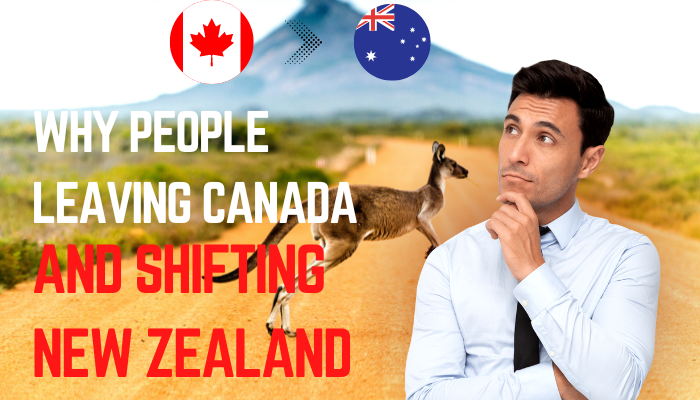In this post, we will discuss the current living conditions in Canada and New Zealand. The purpose is not to compare the two countries but to share a personal viewpoint based on experiences shared by friends who have lived in both Canada and New Zealand.
Weather:
The weather in Canada is quite harsh, especially during the winters, which last for about six months. Continuous snowfall makes it difficult to manage daily tasks, like clearing snow from the driveway and cars. The temperature often drops to sub-zero levels, making outdoor activities nearly impossible during this time.
On the other hand, New Zealand enjoys a more balanced climate. Just like in India, New Zealand experiences all seasons, including pleasant summers and manageable winters without continuous snowfall in most areas. If you enjoy snow, you can visit certain parts of the South Island during winter, but cities like Auckland do not experience snow at all.
Job Opportunities:
In Canada, it’s relatively easy to find jobs in high-demand fields like healthcare, IT, and engineering, with salaries ranging from $80,000 to $150,000. However, for those in trade or farming jobs, the process can be a bit more challenging. Many students and workers coming from India have to go through some struggle before securing a job in their respective fields. It’s not uncommon for them to take on survival jobs like working at gas stations or driving for Uber until they find something better.
In New Zealand, the job system is more transparent, and the government promotes both high-skill and trade jobs equally. Trades like electricians, plumbers, and construction workers often earn more than those in white-collar jobs, including IT. The visa system is straightforward, and if your role appears on their skill shortage list, you can even apply for jobs from your home country.
Visa Process:
The visa process in Canada can be lengthy, with a lot of documentation and proof of funds required. You’ll need to show funds in the range of $25,000 to $27,000 to be eligible. This process can take considerable time, and delays are common.
In contrast, New Zealand’s visa process is simpler, without the need for showing large amounts of funds. If your job is on the skill shortage list, you can apply directly and move forward with minimal complications.
Healthcare:
While healthcare is free in both Canada and New Zealand, accessibility is a key difference. In Canada, healthcare services often involve long waiting times, and getting timely treatment can be difficult. Simple issues like a cold or fever can take hours in waiting rooms, and necessary surgeries often have months-long wait times.
In New Zealand, the healthcare system is more streamlined. You can book an appointment online, receive a prescription via email, and collect your medication from the pharmacy without hassle. If you need surgery or specialist care, the process is well-organized, with clear timelines provided for appointments and procedures.
Transportation:
In Canada, the public transportation system is somewhat limited. Owning a car is almost a necessity, as basic tasks like grocery shopping can become difficult without one. Public trains and buses are available but not as convenient as in other countries.
New Zealand, on the other hand, has an efficient public transportation system. Whether you have a car or not, you can easily manage your daily life with the available buses and trains, making it less of a hassle to get around without a personal vehicle.
Daily Wages:
Canada’s minimum wage is around $15 per hour, while in New Zealand, it has been raised to about $22.65 per hour. Though the cost of living has increased in both countries, New Zealand’s higher minimum wage makes it easier to maintain a good lifestyle. Even with an 8-hour workday, you can expect to earn around $70, which is sufficient for a comfortable life.
Entertainment and Outdoor Activities:
Canada, being landlocked and with long winters, limits outdoor activities for much of the year. However, New Zealand is an adventure lover’s paradise, offering beautiful landscapes, beaches, and mountains. Whether you enjoy glaciers, beaches, or hiking, there’s no shortage of outdoor activities in New Zealand.
Conclusion:
In summary, if you’re considering moving to either Canada or New Zealand, it’s essential to do thorough research and choose based on your preferences. Canada offers high-paying jobs but comes with harsh winters and a more complicated visa and healthcare system. On the other hand, New Zealand offers a balanced climate, a simpler visa process, higher minimum wages, and a beautiful environment filled with outdoor activities.










